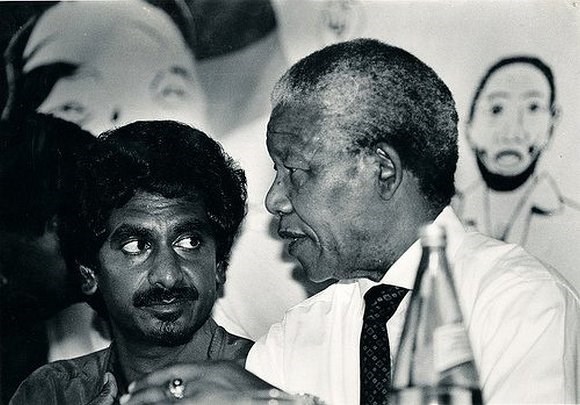One of the most influential Africans living today will be speaking at the the third biennial Kwame Nkrumah International Conference, to be held at Kwantlen Polytechnic University’s Richmond campus today through Friday.
Jay Naidoo, a former minister in Nelson Mandela’s cabinet during the early post-apartheid era, will talk about the challenges facing post-apartheid South Africa as well as issues surronding education reform, gay rights and xenophobia.
The conference, which is open to the public, is named after Ghana’s first independent president and will further discuss Africa’s growing role, both culturally and economically, on the global stage.
“So often, there’s a focus of negative aspects of Africa. So this is a chance to also showcase the best of Africa,” said conference co-chair Dr.Wendy Royal, a KPU professor of sociology and English language studies.
On Thursday, a Tribute to Mandela will include a drumming and singing performance from a member of the Soweto Gospel Choir.
“Mandela has inspired oppressed people throughout the world, and become a universal symbol of forgiveness and reconciliation. This conference attempts to understand his historical role, and critically analyze his legacy of greatness and limitations, and their impact on post-apartheid South Africa,” explained Royal.
Also speaking is Dr. John Pampallis, a former anti-apartheid exile, who will address the struggles that still exist in South Africa today, despite 20 years of political freedom for black people.
Pampallis, a teacher who now advises South Africa’s Minister of Higher Education, will tell the conference that the apartheid era continues to leave a negative impression on a significant population in the country.
“South Africa is in a transitional period. You would think after 20 years we’d be over it. It has been a slower process than what was expected; we underestimated the effects apartheid had on the country,” he said.
South Africa has about three million uneducated, unemployed people aged 18-24, said Pampallis, which is a source of social instability, “not to mention a waste of human talent.”
He notes that the white population inherited a vast amount of “social capital” and to this day teachers in poor, black regions of the country continue to struggle to provide a good education for children.
Royal said many of the topics discussed at the conference have global implications. For instance, Royal noted xenophobia has recently hit close to home with migrant workers rights coming under scrutiny in Canada. Also, racism has recently reared its ugly head in Missouri. And, noted Royal, gay people continue to have to fight for equal social, economic and political rights here in Canada.
Royal also notes Africa’s growing economies and how Western nations have effectively ignored them, while China has taken the reins as the go-to foreign investor.
“We’ve let slip our engagement with Africa and in that time China has taken advantage of that,” noted Royal.
How to develop intellectual, social, economic and cultural opportunities for Canadians of African heritage will be addressed.
The conference takes place at the Melville Centre for Dialogue.
Information and tickets can be obtained at www.kpu.ca/knic. You can also email Royal directly at [email protected].



